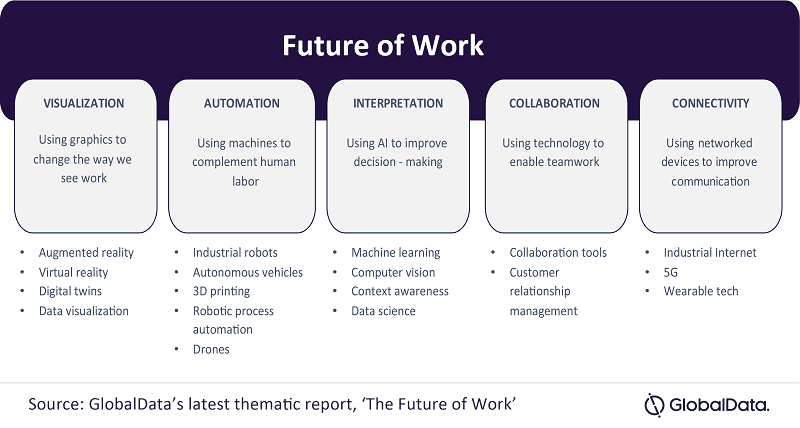The Great Resignation is forcing companies to improve wages and career development opportunities, leaving employees in a stronger position than they have been for years.
GobalData, however, notes that talent scarcity and the volume of unfilled vacancies risk accelerating automation, despite the lack of policies to tackle the digital skills divide.
GlobalData’s latest thematic report, ‘The Future of Work’, reveals that technology is reshaping both factories and offices, encouraging greater collaboration between humans and machines and empowering workers with new digital skills.
Robotics, 5G, and advanced manufacturing techniques using 3D printing and digital twins will enhance work performance on the factory floor. At the same time, technologies like artificial intelligence (AI), cloud, and cybersecurity will be critical in ensuring the coexistence of the digital and physical workplace.

Laura Petrone, principal analyst at GlobalData, says the post-pandemic recovery and economic downturn are shifting the future of work debate towards rebuilding more resilient labour markets and businesses.
“While there is no holding back technology adoption across industries, the question is how to ensure that workers capture its benefits without exacerbating inequalities.”
Laura Petrone
GlobalData’s Future of Work framework

GlobalData’s Future of Work framework highlights the technologies that are disrupting the way we work both in offices and factories. The future of work will involve the intersection of multiple technologies to the extent that the boundaries between these categories will become blurred.




